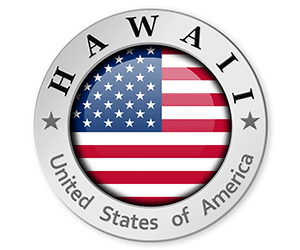Hawaii Arrest Records
Hawaii Arrest Record Search
Hawaii is known for its beautiful beaches, tropical climate, and laid-back lifestyle. However, like any other state, it also has its share of crime. If you are interested in learning more about the criminal activity in Hawaii, you can easily access arrest records, mugshots, and inmate information. We will discuss how to run a Hawaii arrest records search, and what communities have the highest crime rates.
Being Arrested is Public Record
Hawaii arrest records are public records that can be accessed by anyone. These records contain information about individuals who have been arrested and charged with a crime in the state of Hawaii. They include details such as the person’s name, age, address, mugshot, and the charges they were arrested for. These records are maintained by the Hawaii Department of Public Safety and can be accessed through their online database or by visiting the local police station.
You can also use a public records site to access this information. This is a good resource to use if you want to know more about a person’s past. You can learn about someone’s criminal records history, HI warrants, court records, convictions, incarcerations, traffic violations, DUIs, and run a background check on them. These are all considered publicly available information that anyone can view online.
How to Lookup Hawaii Mugshots
To lookup Hawaii mugshots and criminal records, there are a few options. First, you can visit the Hawaii Criminal Justice Data Center website, or the HI Department of Corrections website. You can search by the person’s name, date of birth, or booking number.Another option is to visit the local police station or county courthouse to request physical copies of arrest records. A third option is to search by name on a public record site. With this resource you can search HI mugshots statewide with a first and last name.
Islands and Counties with the Highest Crime Rates
While Hawaii is generally considered a safe state, there are certain islands and counties that have higher crime rates than others. According to the FBI’s Uniform Crime Reporting (UCR) program, the island of Oahu has the highest crime rate in Hawaii, followed by the island of Hawaii (also known as the Big Island). In terms of counties, Honolulu County has the highest crime rate, followed by Hawaii County and Maui County. These are the most populous areas of the Hawaiian islands, which have the highest crime rates.
Top 10 Criminal Arrest Charges in Hawaii
The most common criminal arrest charges in Hawaii include:
- Drug-related offenses
- Assault and battery
- Theft and burglary
- Driving under the influence (DUI)
- Domestic violence
- Robbery
- Sexual assault
- Fraud
- Weapons offenses
- Prostitution
Conclusion
HI arrest records are public records that can be accessed by anyone. You can easily lookup these records using the resources outlined in this article. While this is generally a safe state, certain islands and counties have higher crime rates than others. The top 10 criminal arrest charges include drug-related offenses, assault and battery, and theft and burglary. By staying informed about criminal activity here, you can better protect yourself and your community.

Hawaii Arrests and Mugshots - FAQ
How can I lookup mugshots in Hawaii?
There are a couple of options to lookup Hawaii mugshots and arrests. You can search the HI Criminal Justice Data Center website, or use a public record site and search the entire state with a first and last name.How can I lookup Honolulu arrest records?
You can lookup these records using the Honolulu arrest log, searching the Honolulu police department website, or search with a public records website.How can I lookup Honolulu county mugshots?
You can find Honolulu mugshots and recent arrests by searching the Honolulu police department website, through the HI Criminal Justice website, or using a public records site.Are arrest records in Hawaii considered public record?
Yes, they are considered public record which means that anyone can view and access these records online. They are a part of a person's public criminal record.Please be advised that the information accessed through SearchQuarry.com searches may not always be accurate or current, as we neither generate nor authenticate the data provided via our service. The reliability and precision of information are primarily contingent upon diverse public sources from which data is compiled. By utilizing SearchQuarry.com, you acknowledge your acceptance of the terms delineated in the SearchQuarry.com terms of service and our privacy policies. Information acquired via SearchQuarry.com must not be utilized for unlawful purposes such as stalking or harassing individuals, or scrutinizing public figures or celebrities. Individuals who contravene these directives may be subject to both civil and criminal legal proceedings and sanctions. It is explicitly stated that SearchQuarry.com does not function as a "consumer reporting agency" as defined by the Fair Credit Reporting Act ("FCRA"), and therefore, does not furnish "consumer reports" pursuant to the FCRA. SearchQuarry.com strictly prohibits the utilization of information garnered from search results (a) for discriminatory practices against any consumer; (b) for assessing a consumer's eligibility for personal credit, insurance, employment, housing, or government licenses or benefits; or (c) in any other manner that may impact a consumer's economic or financial status or standing.



Comments
Last Updated: 2024-02-22